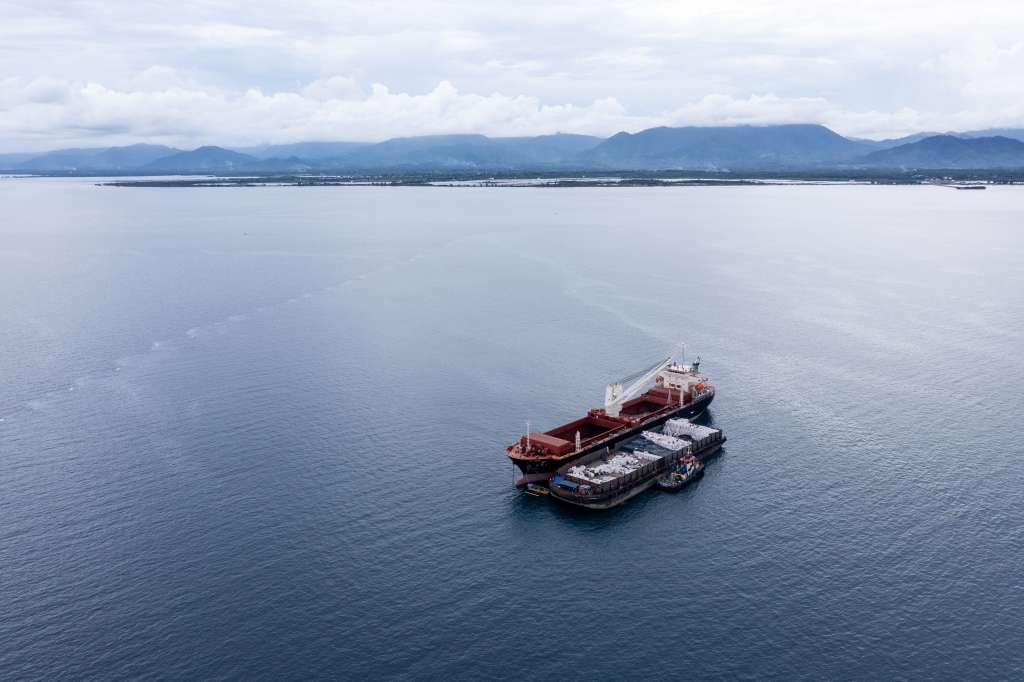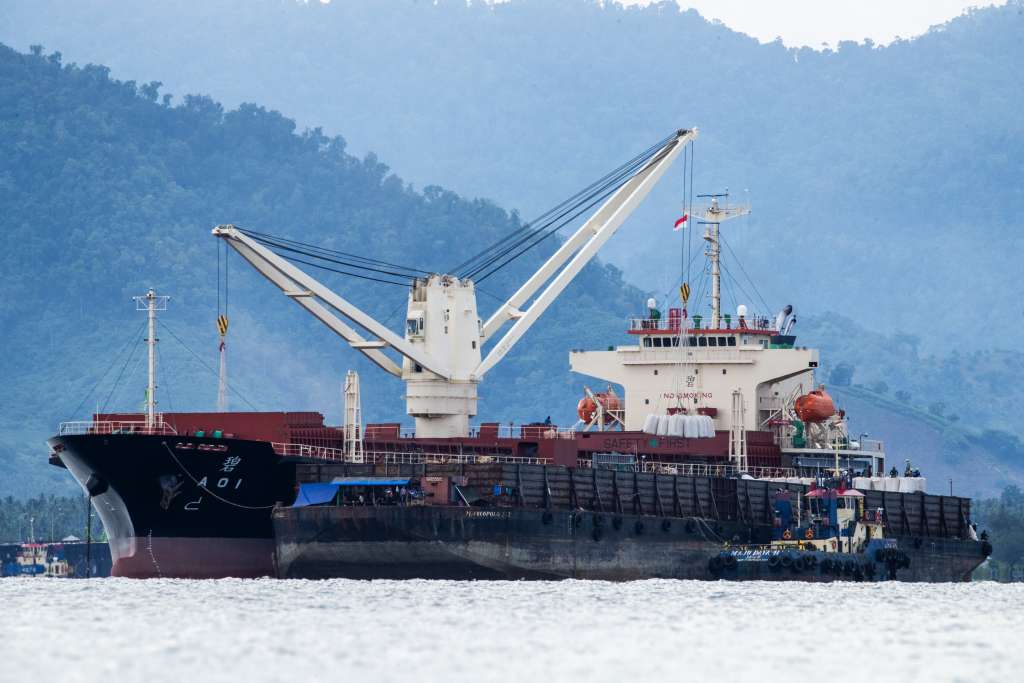
Indonesia, with two-thirds of its territory being ocean, faces significant challenges in maritime surveillance, including the increasingly rampant illegal transshipment occurring offshore. Recently, the foreign vessel MV Lakas was captured by Bakamla RI for carrying wood pellets that were suspected to be illegal in the waters of Gorontalo, which has become the portrait of the persistent issues of illegal, unreported, and unregulated (IUU) affecting maritime trade in Indonesia.
Transshipment is the process of transferring goods from one ship to another at sea. This often occurs in the context of import and export. The foreign vessel MV Lakas engaged in transshipment and was found lacking three essential documents: certificate of origin, certificate of analysis, and declaration of seabirds during inspection by Bakamla RI. These documents are necessary to ensure that the goods being transported are legal and not hazardous.
At sea, transshipment is often used as a loophole to violate laws. Despite Indonesia having 13 institutions responsible for maritime security, only six of them have vessels. The Navy, as one of the institutions responsible for maritime security, has strict standard operating procedures (SOP), as outlined in the Chief of Navy Regulation No. 32 of 2009 concerning Permanent Procedures for Law Enforcement and Security in National Jurisdictional Waters. Similarly, Bakamla RI was established under Presidential Regulation No. 178 of 2014 concerning the Maritime Security Agency, which has the authority to pursue, stop, inspect, capture, and hand over to relevant agencies.
Admiral (Ret.) Dr. Ir. Suyono Thamrin from the Indonesia Defence University (Unhan) stated that one important aspect of maritime law enforcement is having credible preliminary information that convincingly indicates a vessel is committing violations. The transshipment occurring in Gorontalo waters serves as an entry point for law enforcement by Bakamla RI to carry out arrests and further inspections.
Challenges in Maritime Legal Regime
One challenge on the field is the vastness of Indonesia’s waters compared to the number of naval vessels. Therefore, there is a proposal from the President to entrust maritime security to Bakamla RI as a single agency functioning like a Coast Guard.
Transshipment in Tomini Bay, Gorontalo, which also involves two forest exploitation companies in the form of energy plantation that use natural forest wood as raw material for wood pellets. The transshipment involves wood pellet commodities, which typically relate to fuel oil, coal, and fish. This finding was revealed by Forest Watch Indonesia, stating that the export of allegedly illegal wood pellets from Gorontalo occurs through transshipment, which is then sent to wood pellet-consuming countries, namely Japan and South Korea.
Suyono firmly stated that Gorontalo, with its relatively small land area, should not become a major center for wood commodity production, especially if these activities encroach on protected forests. Large-scale wood production in a narrow area will trigger uncontrolled deforestation and damage forest ecosystems that should be protected.

Suyono also addressed the issue of the so-called sustainable energy transition, which requires several policies to be reevaluated. For instance, in efforts to achieve net zero emissions, Indonesia still relies heavily on coal, while energy commodities like wood pellets are more frequently exported than utilized domestically. This is unfortunate, considering that domestic demand has significant potential to absorb wood pellets, particularly in the context of the energy transition. However, Indonesia should truly abandon biomass energy that tends to damage forests and cause agrarian conflicts, as seen in Mentawai District, West Sumatra.
Another highlight is that energy transition policies are still contradictory, such as the ongoing construction of new coal-fired power plants (PLTU) amid calls for a clean energy transition, indicating a lack of alignment in national energy planning. Indonesia should focus on developing solar-powered electricity generation. Unfortunately, the household rooftop solar power plant (PLTS) installation program, which should be part of the energy transition solution, is hindered by PLN’s unwillingness to purchase electricity from community-owned PLTS installationsThis is a tangible example of a policy that has not yet been fully integrated effectively.
This note is sourced from a Roundtable discussion between CSOs and the media organized in collaboration with FWI and AJI Jakarta on September 26, 2024, in Jakarta.
Contact person: Media FWI (0857-2034-6154)
Presentation material by Suyono Thamrin on Maritime Trade and Transshipment Law in the Energy Transition Era can be downloaded at the link below:



